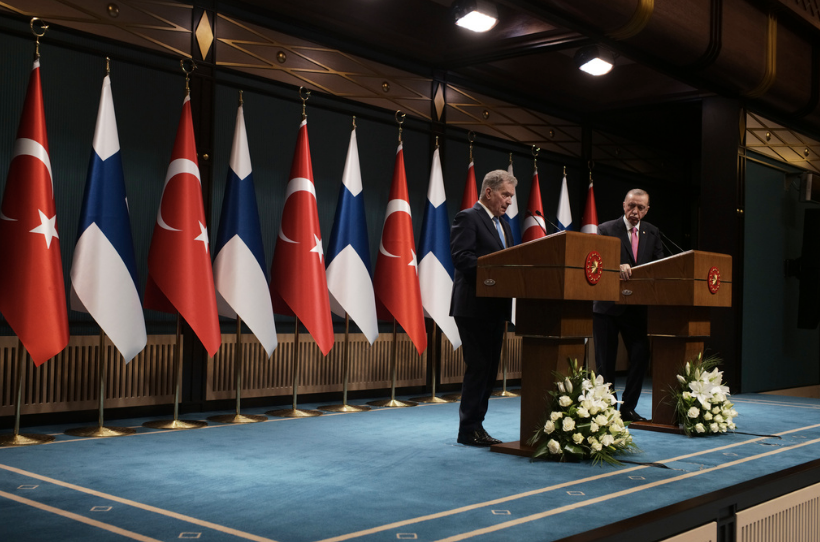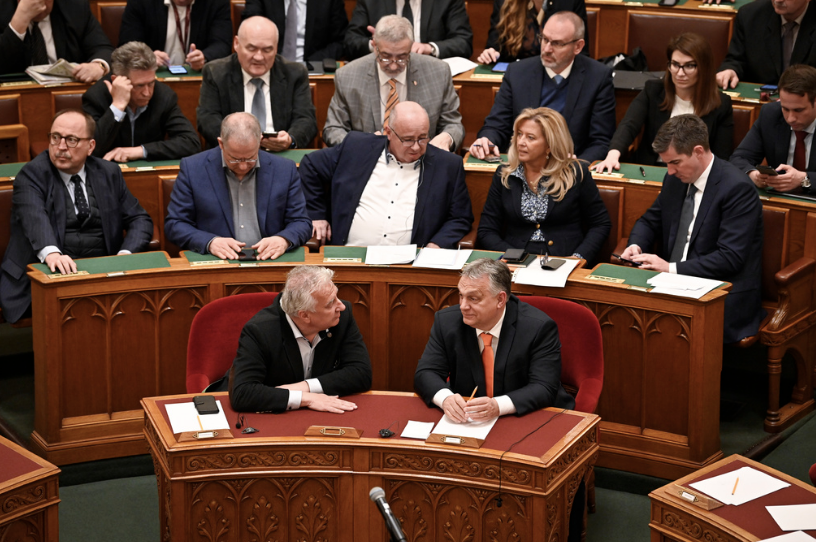Finland First: Sweden still seeks a path to NATO Membership
On March 17th, Turkish President Recep Tayyip Erdogan gave Finnish President Sauli Niinisto the green light to apply for NATO membership, signaling a shift in Erdogan's policy. Since February of last year, Erdogan had blocked both Finnish and Swedish bids for NATO membership. During a news conference in Ankara, Erdogan stated, "We decided to start the ratification process in our Parliament for Finland's membership," adding that Turkey would "keep its promise."
For decades, Finland has maintained military non-alignment, despite its EU membership and strong ties with Western Europe. However, the Russian invasion of Ukraine raised concerns within the Finnish government, prompting a change in stance. Finland holds the longest border with Russia of any EU member-state, and has a history of conflict with Russia. Finland is now on track to become a NATO member state.
Six days after Erdogan's meeting with Niinisto, the Turkish parliament's foreign affairs commission approved a bill ratifying Finland's NATO membership bid. In the joint press conference with President Niinisto, the Turkish President provided the reasoning behind the decision, saying "NATO will become stronger with Finland's membership and thus, I believe, will play an active role in maintaining global security and stability,". The next step is for the Turkish parliament to vote on the matter before it adjourns in mid-April ahead of parliamentary and presidential elections on May 14. For Finland and Sweden to join NATO, ratification is required by the parliaments of all 30 NATO members.
Until recently, Erdogan had been the blocking vote for both the Swedish and Finnish bids for NATO membership. He demanded that Sweden crack down on Kurdish terrorist groups operating in the country and stop Quran burnings. Initially, Sweden and Finland had jointly applied for membership, but Finland subsequently prepared separate legislation due to the impasse.
Despite his change of stance on Finland, Erdogan continues to block Sweden's bid for membership. Nevertheless, the Swedish government remains optimistic. On March 22, the Swedish parliament formally approved a bill to allow the country to join NATO once all 30 member states have ratified its application. Swedish Foreign Minister Tobias Billstrom told Reuters, "It goes without saying that we will be able to become members by Vilnius," referring to the NATO summit in Lithuania in July.
Even if the Turkish government decides to flip its vote on Swedish membership, Sweden’s enrollment will still face opposition from Hungary. On March 27th, Hungary's parliament approved a bill allowing Finland to join NATO, signed by Prime Minister Viktor Orban and Deputy Prime Minister Zsolt Semjen. However, no vote has been scheduled for Sweden's bid. Hungary is currently in talks with the European Commission, which has halted the disbursement of EU funds to the country due to concerns about the government's erosion of democratic rights and corruption. Prime Minister Orban denies these allegations. It’s likely Hungary chooses to withhold the Swedish NATO bid in an attempt to gain leverage in negotiations with the European Commission, the governing body of the EU - made up mostly of nations within the NATO alliance.
On the 26th, Orban's chief political aide told Reuters that his government supports Sweden's NATO membership bid, adding that "now it's up to the parliament to make a decision."
Finland's full membership status will be the first granted since North Macedonia joined NATO in 2020. It seems likely that Sweden's entrance will soon follow. Since NATO’s founding in 1949, 28 countries have joined. Adding another NATO member state with a large border furthers the precarious level of tension growing between the West and Russia.


